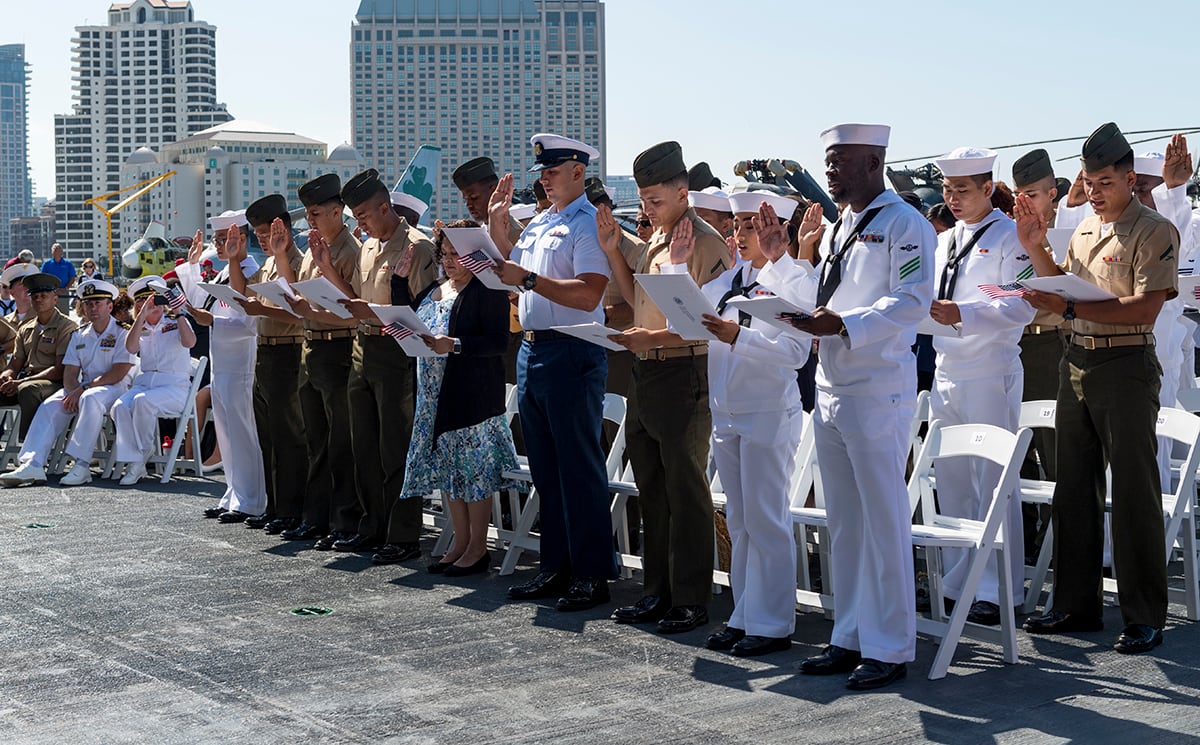When non-citizen veterans are detained by Immigration and Customs Enforcement, policy dictates that service records are considered when deciding whether to force deportation.
But that policy hasn’t always been followed in recent years. So on Tuesday, the Homeland Security Department announced a new directive to formalize it.
Agency-wide guidance will follow, according to a Tuesday release from DHS, “to ensure service in the U.S. military by a noncitizen or their immediate family members is taken into consideration when deciding whether to take civil immigration enforcement actions against them and what enforcement action to take, if any.”
The formalized policy also requires training on veteran deportation cases, as well as mandatory tracking and reporting.
The move is part of the joint Immigrant Military Members and Veterans Initiative between DHS and VA, according to the release.
A 2019 Government Accountability Office report found that 250 non-citizen veterans were under deportation threat between 2013 and 2018, and 92 of them were ultimately deported.
“Specifically, ICE policies require agents and officers to document the decision to issue a [notice to appear] to a veteran, but do not require agents and officers to identify and document veteran status when interviewing potentially removable individuals,” according to the 2019 GAO report.
The GAO report also found that agents were not asking about military service, and in some cases, didn’t know that they were supposed to.
“Further, in December 2018 [Homeland Security Investigations] officials told us that HSI has not been adhering to either the 2004 or the 2015 policies because they were unaware of the policies prior to our review,” according to the report.
The plight of deported veterans has made multiple headlines in recent years, prompting action from lawmakers, mostly.
RELATED

The program that had for more than a decade allowed non-citizens to join and earn citizenship ― known as Military Accessions Vital to the National Interest ― was throttled toward the end of the Obama administration before being completely suspended by the Trump administration.
At the same time, Trump-era immigration policies put active duty troops, their family members and veterans at risk of deportation, removing protections that had previously allowed them to stay in the U.S. while their cases were handled.
In the wake of those moves, lawmakers have proposed multiple bills that would not only make it easier for deported veterans to return to the U.S., but give them a pathway to citizenship.
Neither have come to a vote.
Meghann Myers is the Pentagon bureau chief at Military Times. She covers operations, policy, personnel, leadership and other issues affecting service members.





